Business
Boosting Business Productivity and Profitability with Advanced CRM Software Development
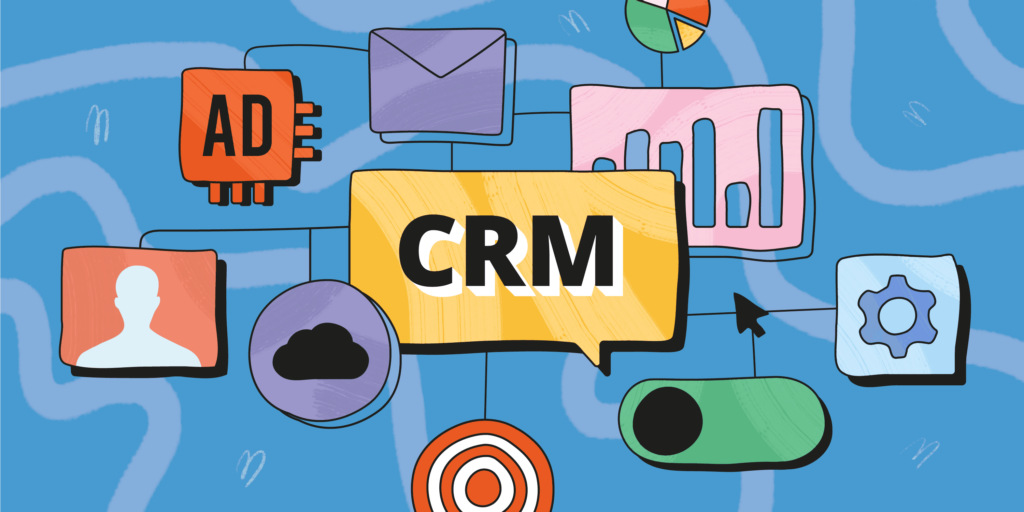
In today’s competitive business landscape, organizations strive to enhance their productivity and profitability through the efficient utilization of cutting-edge technology. One such transformative tool is Customer Relationship Management (CRM) software. By investing in advanced CRM software development, businesses can streamline their operations, improve collaboration, and ultimately boost productivity and profitability.
Streamlined Communication and Collaboration
One of the key benefits of advanced CRM systems is the facilitation of seamless communication and collaboration within an organization. By centralizing customer data, communication history, and transaction details, teams can access real-time information, reducing the need for multiple touchpoints. This fosters efficient collaboration, ensuring that everyone is on the same page and working towards common goals. With improved communication and collaboration, productivity is enhanced, leading to increased profitability.
Enhanced Customer Insights
Understanding customer needs and preferences is essential for delivering personalized experiences and building long-lasting relationships. Advanced CRM software goes beyond basic data storage, offering sophisticated analytics tools. By harnessing data analytics, businesses can gain valuable insights into customer behavior, enabling targeted marketing strategies and personalized engagement. This deep understanding of customers not only enhances satisfaction but also increases the likelihood of repeat business, driving overall profitability.
Automation for Efficiency
Automation is a cornerstone of advanced CRM systems. By automating routine tasks such as data entry, lead nurturing, and follow-ups, businesses can significantly reduce manual effort and minimize human error. This not only frees up valuable time for employees but also ensures that critical processes are executed consistently. Improved efficiency translates directly to increased productivity and, consequently, higher profitability.
Seamless Integration with Other Tools
An advanced CRM system seamlessly integrates with other business tools and applications, creating a unified ecosystem. Whether it’s integrating with marketing automation platforms, e-commerce systems, or project management tools, a well-developed CRM system ensures a smooth flow of information across all departments. This integration eliminates data silos, enhances overall business efficiency, and allows for better collaboration between teams.
Real-Time Analytics for Informed Decision-Making
Timely and informed decision-making is crucial for business success. Advanced CRM software provides real-time analytics and reporting, allowing stakeholders to make data-driven decisions. Whether it’s identifying sales trends, assessing marketing campaign performance, or tracking customer satisfaction metrics, having access to up-to-date information empowers businesses to adapt quickly and stay ahead of the competition. Informed decision-making based on real-time analytics leads to increased productivity and profitability. Find more here
Customization for Specific Business Needs
Every business has unique requirements and processes. Advanced CRM software development allows for customization to meet specific business needs. Whether it’s creating custom workflows, adding industry-specific features, or integrating with existing systems, a tailored CRM solution ensures that the software aligns perfectly with the organization’s goals and processes. Customization maximizes productivity by providing a solution that is specifically designed to address the challenges and requirements of the business.
Mobile Access for Remote Productivity
In today’s mobile-centric world, remote work has become increasingly prevalent. Advanced CRM software development includes mobile access, allowing employees to access critical information and perform tasks on the go. Whether it’s updating customer details, reviewing sales pipelines, or responding to leads, mobile access to CRM systems ensures that productivity is not hindered by physical location. This flexibility enables businesses to maintain productivity and profitability, even in remote work environments.
Training and Support for Optimal Utilization
To fully leverage the benefits of advanced CRM software, organizations should invest in training and support for their employees. Proper training ensures that employees understand the features and functionalities of the CRM system, enabling them to utilize it to its full potential. Ongoing support and guidance from CRM experts can help businesses overcome any challenges and optimize their usage of the software. By providing the necessary training and support, organizations can maximize productivity and profitability.
Data Security and Privacy Measures
With the increasing importance of data protection and privacy, advanced CRM software development prioritizes robust security measures. CRM systems employ encryption, access controls, and regular backups to safeguard customer data and sensitive business information. Compliance with data protection regulations, such as GDPR or CCPA, demonstrates a commitment to data security and builds trust with customers. By ensuring the security and privacy of data, businesses can focus on productivity and profitability without compromising sensitive information.
Scalability for Future Growth
As businesses grow, their needs and requirements evolve. Advanced CRM software is designed to scale alongside the organization, accommodating increased data volume and user demand. Scalability allows businesses to continue utilizing their CRM system efficiently, even as customer bases expand and operations become more complex. By investing in a scalable CRM solution, organizations can ensure long-term productivity and profitability, without the need for a complete system overhaul.
Integration with AI and Automation Technologies
The integration of AI and automation technologies with advanced CRM software opens up new possibilities for productivity and profitability. AI-powered chatbots can handle customer inquiries, freeing up human resources to focus on more complex tasks. Automated workflows and predictive analytics can identify patterns and opportunities, optimizing sales and marketing efforts. By harnessing the power of AI and automation, businesses can achieve higher levels of productivity and profitability.
Conclusion
In conclusion, investing in advanced CRM software development is a strategic move for optimizing business processes, improving collaboration, and ultimately boosting productivity and profitability. With streamlined communication, enhanced customer insights, automation, seamless integration with other tools, real-time analytics, customization, mobile access, training and support, data security measures, scalability, and integration with AI and automation technologies, businesses can unlock new levels of efficiency and profitability. Embracing the power of advanced CRM solutions allows organizations to thrive in today’s dynamic and competitive market, achieving sustained growth and success.
Remember, the success of CRM software lies in its implementation and utilization, so choose a reputable CRM software provider that understands your business needs and offers comprehensive support throughout your CRM journey.
Business
Zobis Cables: Elevating the Standard of Nigeria Electrical Cables
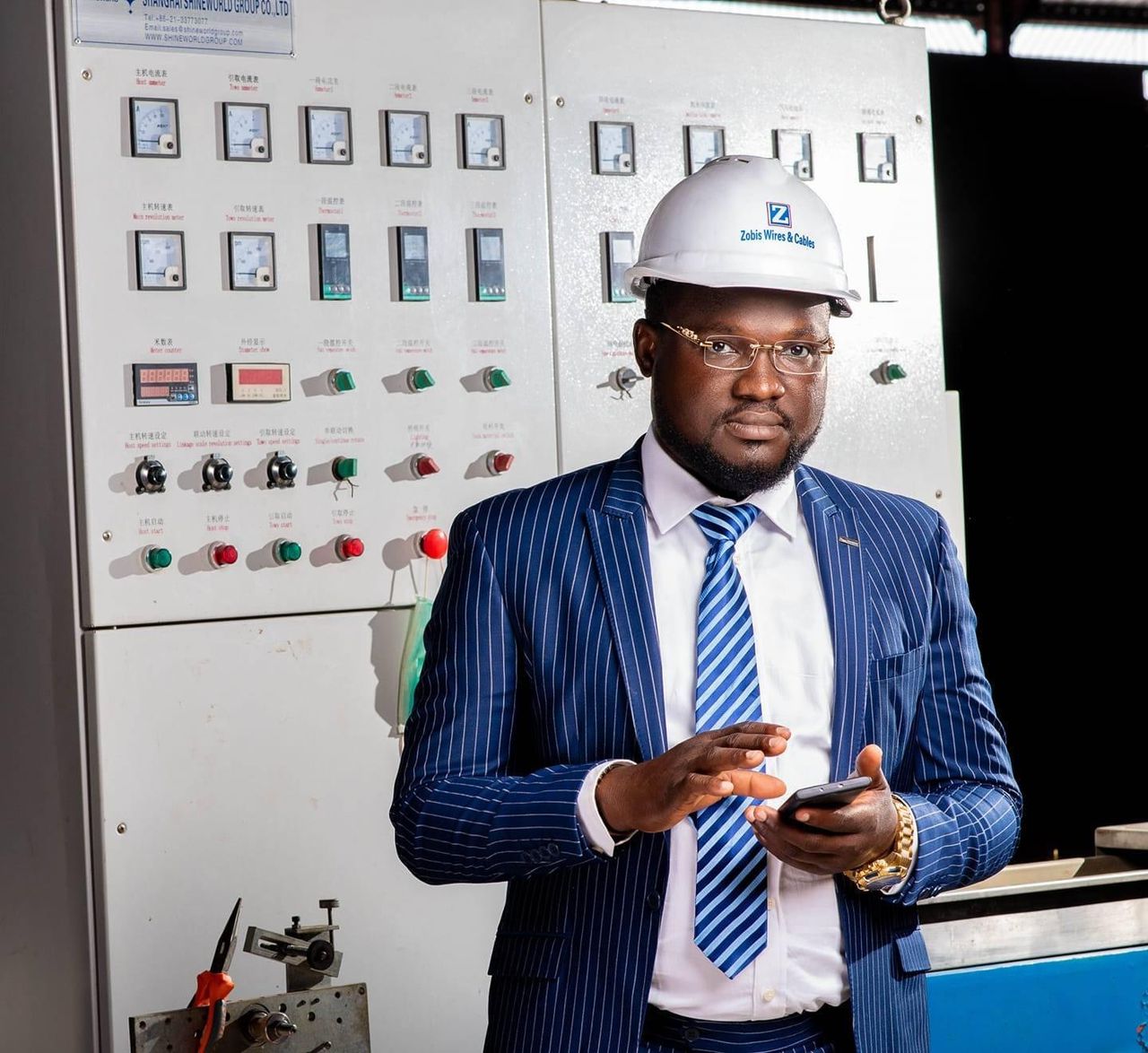
From its modest inception in 2006 to its current standing as a formidable player in the electrical manufacturing industry, Zobis Electrical Wires and Cable Nigeria Limited has evolved into a household name. Initially established as a trading company, its remarkable performance over the years led to the diversification of its portfolio into civil and mechanical engineering, culminating in the establishment of John Zobis Engineering in 2010.
The visionary founder, John Ezeobi, a university student from a middle-class background, embarked on this journey with a mere 1,350 naira he had saved during his school years in 2006. Remarkably, his first supply venture yielded a profit of 8,000 naira, highlighting his unwavering commitment to quality.

John Ezeobi
Today, John Ezeobi Zobis Electrical Wires and Cable stands as a towering figure in the industry. When discussing prominent names in the electrical manufacturing sector, Zobis Electrical Wires and Cable invariably finds its place at the top. Their prominence extends throughout the South East and South-South regions of Nigeria, thanks to their substantial cable manufacturing capacity.
John Ezeobi’s aspirations reach far beyond mere recognition and awards. The visionary founder envisions a grander future.
Zobis Electrical Wires and Cable boasts an impressive track record, having collaborated with oil servicing companies, military entities, and esteemed organizations. Currently, they are undertaking a significant expansion project to enhance their factory’s capacity to 1,000 metric tonnes, offering various cable sizes and generating employment opportunities for approximately a thousand individuals.
Integral to their operations is community engagement. Located in Okoti, Anambra State, Zobis Electrical Wires and Cable has gone the extra mile by constructing homes for the less privileged, improving infrastructure through road construction, and implementing a drainage system to mitigate flooding.
Ezeobi’s motivation is to provide Nigeria with top-tier cables, combating the prevalence of subpar products in the market. Their mission revolves around ensuring safety through the provision of durable, high-quality cables made in Nigeria.
Yet, they face substantial challenges. Securing loans from banks and grappling with erratic power supply are significant hurdles that Ezeobi hopes the government will address.
Looking back on their journey, Ezeobi’s greatest satisfaction stems from the smiles on the faces of their dedicated employees, as he consistently pays their salaries every month.
His advice to the younger generation is a call for unwavering commitment to quality, even in the face of pressure from manufacturers and importers who compromise on standards.
In an industry often marked by shortcuts to cut costs, Zobis Electrical Wires and Cable Nigeria Limited stands as a beacon of integrity, guided by their motto of “Honesty and Sincerity,” continually raising the bar for electrical cables in Nigeria.
Africa
How much is Nigeria International Passport 2023

In the year 2023, the cost of the standard 32 pages passport is N70,000 and 64 pages cost N100,000.
Africa
“How Cheap Cables Can Be a Fire Hazard” – John Ezeobi (Zobis Electrical Wires And Cables)
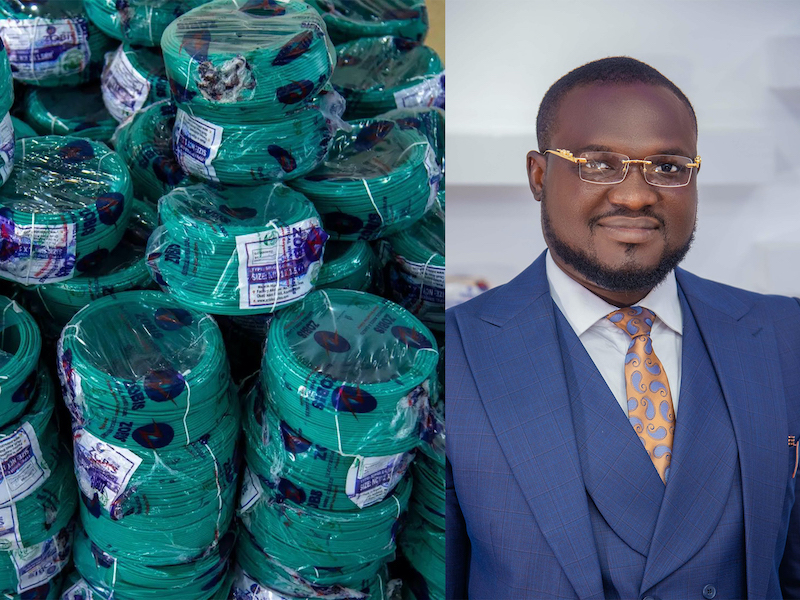
Quality Cables and Wires should be considered. As safety and quality professionals, we can not stress enough the importance of selecting high-quality electrical cables and wires. While it may seem like an easy area to cut costs, doing so can have dangerous consequences. Inferior cables are more prone to overheating, short circuiting, and fires which put lives and property at risk. For these reasons, we strongly advise against cutting corners on cables. cables and wires
The Importance of Using High-Quality Cables and Wires
As manufacturers of high-quality cables and wires, we cannot emphasize enough the importance of using premium electrical cables and wires. There are several reasons why cutting corners in this area can be dangerous: https://www.facebook.com/zobiselectricalwiresandcables
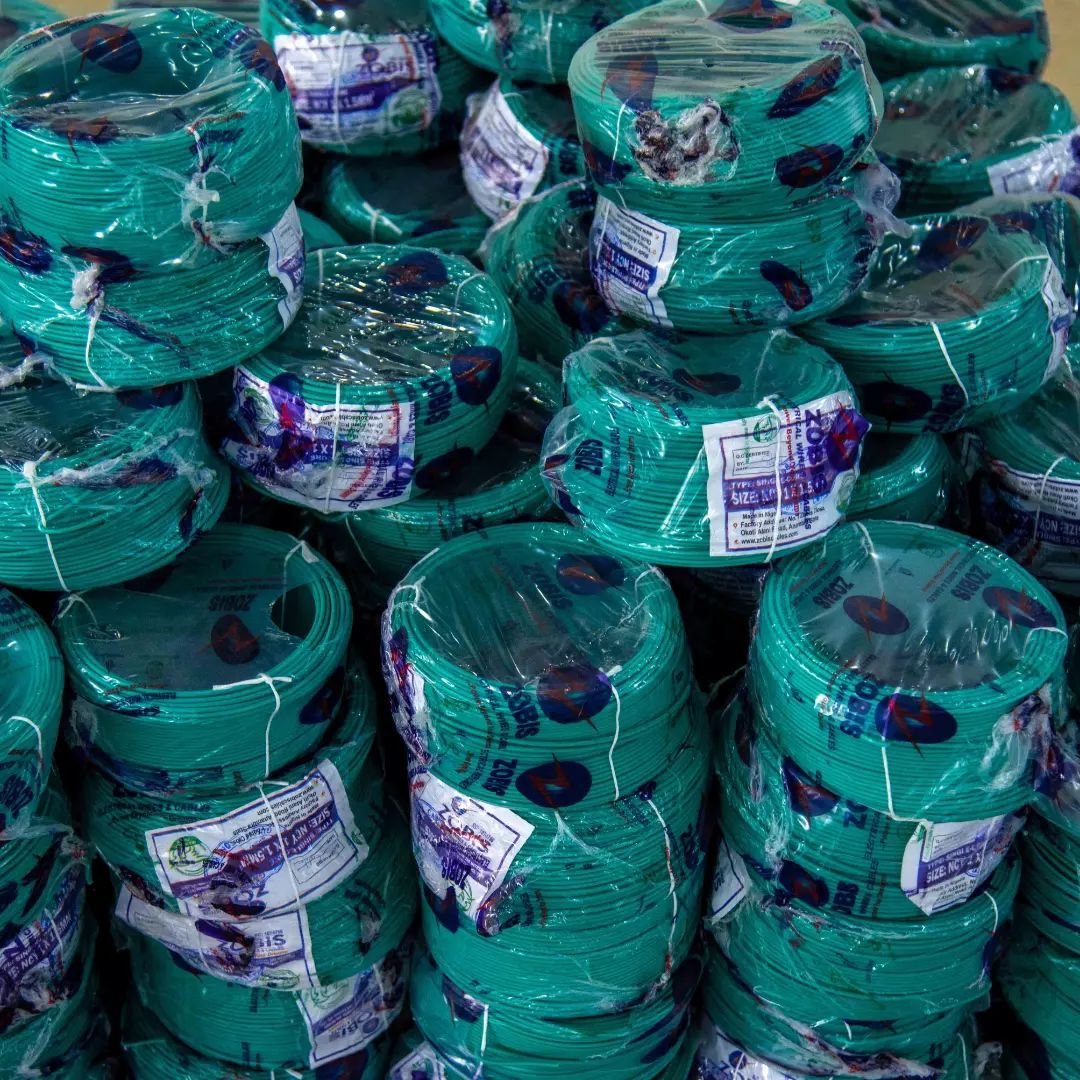
- Safety hazards. Inferior cables and wires are more prone to overheating, short-circuiting, and electrical fires which can lead to loss of property and even life. Our products undergo rigorous testing to ensure they meet the highest safety standards and reduce risks.
- Power inefficiencies. Low-quality cables and wires are unable to efficiently transmit electricity which results in power losses. This wastes energy and money. Our cables and wires are engineered to minimize power leakage and maximize energy efficiency.
- Frequent repairs and replacements. Subpar cables and wires tend to deteriorate and break down more quickly, requiring frequent repairs and replacements. Our premium offerings are built to last, saving time, money and reducing waste in the long run.
- Compatibility issues. Poor quality cables and wires may not be fully compatible with your electrical systems and devices. This can damage equipment or reduce performance. We design our cables and wires to seamlessly work with all standard systems and machinery.
In summary, while cheaper cables and wires may save money upfront, the long term costs to safety, efficiency, the environment and your budget make quality offerings worth the investment. For reliable, durable and high-performing cables and wires, there are no shortcuts. Quality matters.
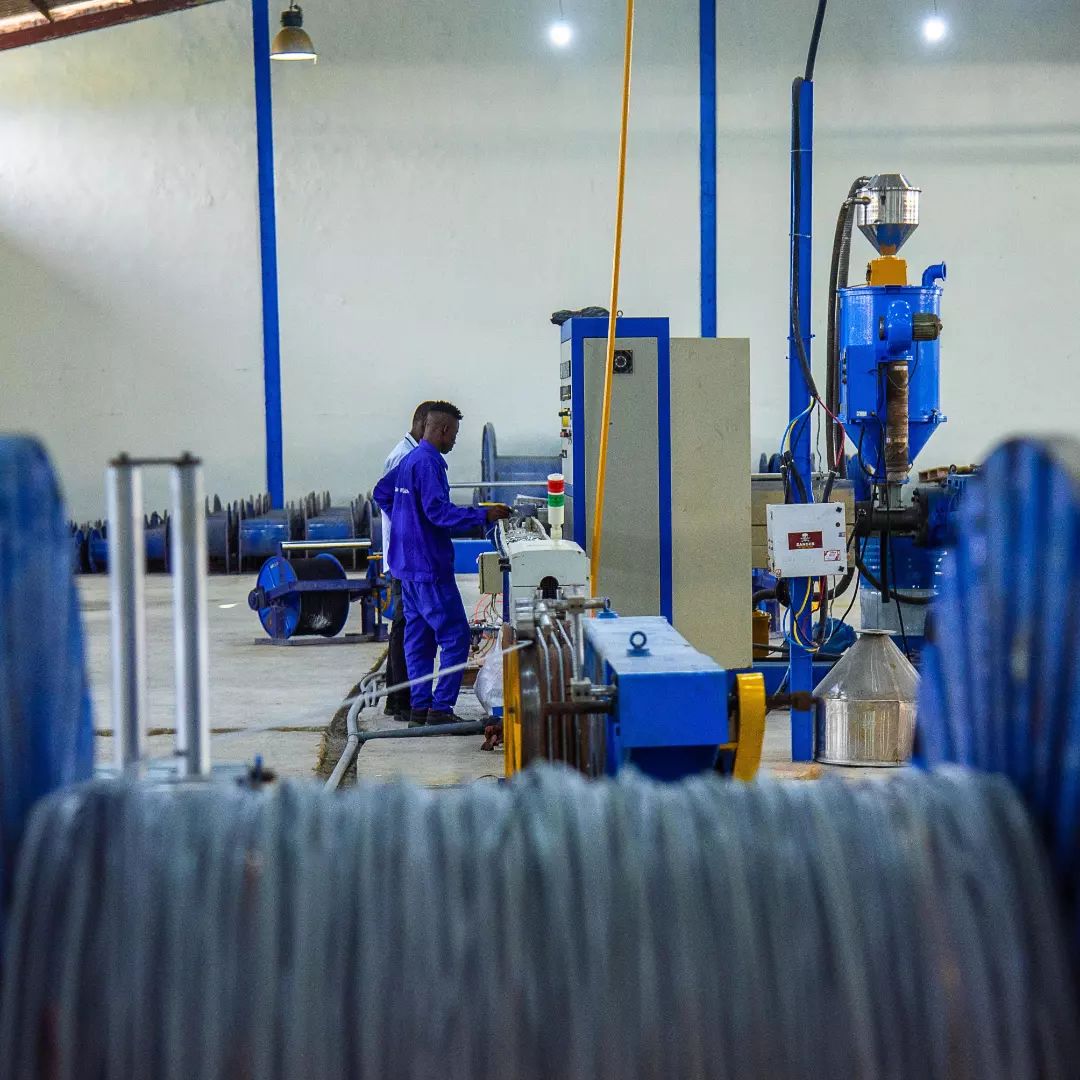
How Cheap Cables Can Be a Fire Hazard
As manufacturers and suppliers of high-quality electrical cables and wires, we cannot overstate the importance of using quality components in any wiring system. Cheaper, low-quality cables and wires can pose serious safety risks and hazards.
When purchasing cables and wires, many try to cut costs by opting for cheaper alternatives. However, these inexpensive options are cheap for a reason – they are made of inferior materials and to lower production standards. Over time, the insulation and protective casings can degrade, exposing the inner wiring. This creates the potential for arcs, sparks, and electrical fires.
According to studies, almost 25% of all electrical fires are caused by issues with wiring and cables. The risks associated with cheap, low-quality cables and wires far outweigh any upfront cost savings. Some of the hazards and dangers of using subpar cables and wires include:
•Overheating: Inferior insulation and temperature ratings can lead to overheating of the cables, melting the insulation and creating fire risks.
•Arcing and sparking: As the cheap insulation degrades over time, it exposes the inner wiring which can then arc and spark, igniting nearby flammable materials.
•Moisture damage: Cheap plastics and rubbers used in low-quality cables break down more quickly and can allow moisture to penetrate, compromising the wiring.
•Wire corrosion: Lesser quality wires and conductors corrode faster, interrupting electrical flows and connections.
•EMF emissions: Poorly shielded cheap cables can emit higher levels of potentially harmful EMF radiation.
In summary, cutting corners to save money on electrical wiring and cables is dangerous and irresponsible. For safety, performance, and reliability, it is always best to choose high-quality, professionally-installed cables and wires. Your home or business – and lives – depend on it.
Why Quality Cables Last Longer
Higher Quality Materials
As professional electricians, we only recommend installing high-quality cables and wires. Inferior products are made from substandard materials that degrade faster, resulting in a shorter lifespan. Premium cables utilize materials like pure copper, silver, or gold for optimal conductivity and durability. These metals are more resistant to corrosion and oxidation over time.
Sturdier Design
Superior manufacturing processes also produce cables with stronger, more robust designs. Multiple strands are tightly woven together and reinforced for maximum tensile strength. Heavy-duty jackets, shields, and sheaths protect the internal components from damage, moisture, high temperatures, and other environmental factors. These design elements dramatically improve safety, performance, and longevity.
Superior Performance
Higher-end cables are engineered to handle greater power loads with less signal loss or interference. Specialized cables for audio, video, networking, and other applications are specifically optimized for their intended use. Premium HDMI cables, for example, support faster data transfer speeds for 4K and 8K video. Network cables have tighter twists and higher-quality connectors to minimize crosstalk and latency. In short, premium cables simply perform better and last longer.
Longer Life Expectancy
Due to their premium materials, sturdier construction, and optimized performance, high-quality cables and wires have a significantly longer service life. While cheap cables may only last a few months to a couple of years, premium cables can perform for 10-25 years or more. Although the initial investment is higher, premium cables are more cost-effective in the long run due to fewer replacements. For critical systems, the added reliability and safety are well worth the extra expense.
In summary, investing in premium, high-quality cables and wires for your home or business is highly advisable due to their superior materials, robust and durable designs, optimized performance, and longer life expectancy. Cutting corners to save money on cables is dangerous and can lead to power issues, data loss, equipment damage, fire hazards, and other problems down the line. For safety, reliability and value, choose high-quality cables that are built to last.
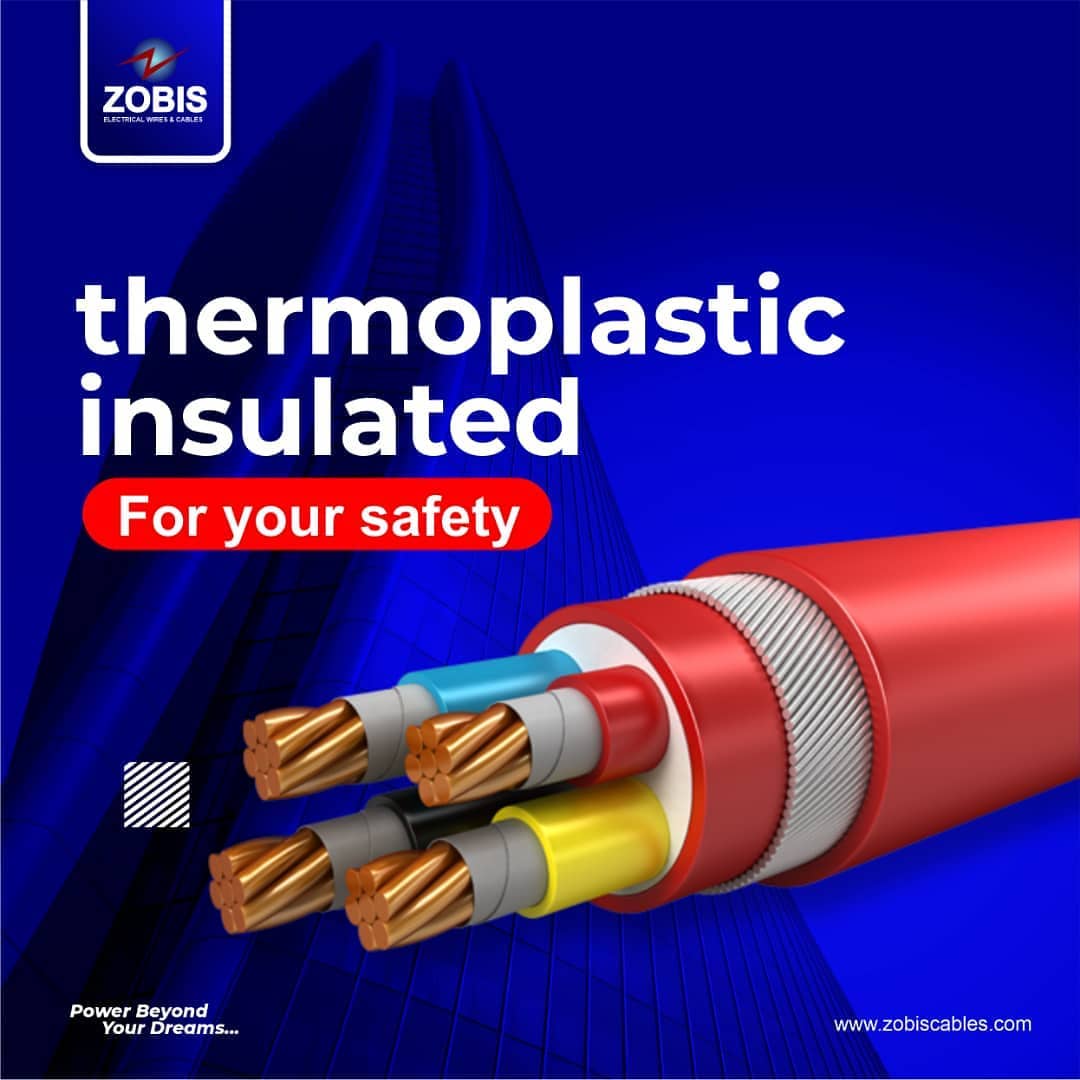
Zobis Cables and Wires
How to Identify High-Quality Cables and Wires
As professionals in the electrical and construction industries, we can not overemphasize the importance of using high-quality cables and wires. Inferior cables can pose serious safety and performance issues that endanger lives and property. When outfitting a building, it is crucial we source and install the best possible cabling to safeguard occupants and ensure consistent operation of connected systems.
Durability and Insulation
High-quality cables are built to last using durable, fire-resistant insulation and jacketing materials that can withstand environmental stresses over time. Cheaper cables will degrade faster, compromising their insulation and increasing the risk of short circuits. As responsible contractors, we must install cabling that will endure for the lifetime of the building and beyond.
Current Capacity
Premium wires and cables are properly rated for the amount of current they can safely carry. If undersized or low quality cables are used, they can overheat when loads approach their maximum capacity. This poses a severe fire hazard and reduces system efficiency. We must size all cables appropriately for the circuits they supply to avoid dangerous overloads.
Certifications and Testing
Reputable cable manufacturers voluntarily subject their products to stringent testing to verify performance claims and receive safety certifications. These certifications, like those from Underwriters Laboratories (UL), assure us the cables will operate as intended without hazard. Only proven, certified cables should be considered for installation.
Price vs. Value
While higher-quality cables often come with a higher upfront cost, their superior durability and safety provide better long-term value. Premature cable failures can be expensive to repair and replace, not to mention the potential damage and liability costs of a fire or other incident. For our clients, high-performance, long-lasting cables are the most cost-effective and responsible choice.
When undertaking a new build or renovation, we must not cut corners on cabling to save money. High-quality wires and cables are an investment in safety, performance and peace of mind for occupants. Our role as professionals obligates us to source and install only the best possible products for the job. By identifying cables that meet the highest standards, we fulfill our duty to protect lives and property from undue risk.
Why Zobis Cables Are the Smart Choice
As professionals in the electrical and construction industries, we understand the importance of using high-quality components. Inferior cables and wires can be dangerous and lead to system failures, fires, and other issues. This is why we only recommend and install Zobis Cables and Wires.
Premium Materials
Zobis Cables and Wires are made from the finest copper and aluminum materials available. Their cables utilize 99.9% pure copper for maximum conductivity and durability. Aluminum wiring is also 99.9% pure. These high-grade materials allow for efficient transfer of power while reducing resistance, heat buildup, and voltage drop.
Stringent Testing
All Zobis Cables and Wires undergo rigorous testing to ensure safety and reliability. They are certified to meet and exceed industry standards for temperature rating, insulation thickness, and voltage capacities. Their cables and wires have passed flame tests, chemical resistance tests, and extreme environment simulations. This exhaustive testing gives us confidence in the performance and safety of Zobis products.
Built to Last
Zobis Cables and Wires are engineered for longevity. Their cables feature durable PVC, rubber, nylon, or Teflon insulation and weather-resistant jackets suitable for indoor and outdoor applications. Connectors and terminals are also high quality to prevent overheating or failure over time. Properly installed, Zobis Cables and Wires can provide power for decades without issue. For demanding industrial uses, their products offer some of the longest lifespans available.
Peace of Mind
By choosing Zobis Cables and Wires, you can rest assured you are getting the highest quality, safest, and most reliable products on the market. Their cables and wires meet the strictest certifications and are backed by a 10-year warranty against defects in materials or workmanship. For critical systems, there is simply no better choice than Zobis.
In summary, Zobis Cables and Wires represent the smart choice for quality, safety, performance, and reliability. Their premium products give us confidence in the electrical systems we design and install. For your next project, we highly recommend Zobis – and we think you’ll be glad you chose them too.
Common Types of Cables and Their Uses
As professional electricians, we cannot stress enough the importance of using high-quality cables and wires for any electrical installation. The types of cables selected for a project directly impact safety, performance, and longevity. In this section, we will explore the common types of cables used in residential and commercial wiring along with their specific uses.
Non-Metallic Sheathed Cable
Non-metallic sheathed cable (NMSC), also known as Romex, is commonly used for indoor residential wiring. It features two or more plastic-insulated conductors enclosed in a plastic sheath. NMSC is affordable, easy to install, and can be used for lighting and receptacle circuits operating at 600 volts or less. However, it cannot be exposed and is not suitable for damp or wet locations.
Metal-Clad Cable
For commercial buildings and some residential applications requiring a durable, fire-resistant cable, metal-clad cable (MC) is an excellent choice. It contains two or more conductors with thermoplastic insulation, enclosed in an interlocking metal armor. MC can be installed exposed and is ideal for use in air handling ceilings and walls. It is also suitable for Class 1, Division 2 hazardous locations. MC tends to be more expensive than NMSC but provides enhanced protection and a longer service life.
Flexible Metal Conduit
Flexible metal conduit (FMC), or “flex,” features a flexible steel armor surrounding an insulated grounding conductor and one or more insulated circuit conductors. FMC is designed for installations where flexibility and protection of conductors is necessary, such as connections to lighting fixtures or motors. It can be installed exposed or concealed, indoors or outdoors, and in damp or corrosive environments. However, FMC is more difficult to install and expensive compared to NMSC and MC.
In summary, selecting the appropriate type of cable for an installation helps ensure optimal safety, performance, and cost-efficiency. Compromising on cable quality to cut costs is dangerous and should always be avoided. For any electrical project, we recommend consulting a licensed professional to determine the best wiring methods and materials for your specific needs.
Choosing the Right Cables and Wires for Your Needs
Choosing the Right Cables and Wires
When selecting cables and wires for any electrical system, it is critical to consider several factors to ensure safe, efficient, and long-lasting operation. As professionals in the field, we know that cutting corners to reduce costs often leads to dangerous outcomes and should be avoided.
- Gage: The gage refers to the thickness of the wire, with lower gage numbers indicating a larger diameter. For most residential and commercial wiring, 10-, 12-, and 14-gage wires are commonly used. Higher voltage applications require thicker wires to handle the increased amperage. It is important to choose a gage properly rated for the amount of current in the circuit.
- Insulation: The insulation surrounds the conductive wire and protects from short circuits and electrical fires. Common insulation types include PVC, Teflon, silicone, and rubber. The insulation must be rated for the voltage in the system. Higher quality insulation that is resistant to heat and weather tends to last longer.
- Stranding: Stranded wires contain several small wire strands twisted together, while solid wires contain a single conductive strand. Stranded wire is more flexible and resistant to vibration, making it suitable for applications where the wire may move frequently. Solid wire is typically cheaper but more prone to breakage.
- Certifications: Reputable wire and cable manufacturers will provide certifications indicating their products meet safety standards. Look for labels like UL, CSA, VDE, and CE to ensure the items are certified for their intended use. uncertified products could be dangerous to install and may void insurance policies if an incident occurs.
When it comes to electrical systems, it does not pay to cut costs on cables and wires. Choosing components properly rated for the voltage and certified as safe for the application may cost more upfront but will provide peace of mind and help avoid dangerous and costly problems down the road. As the old adage goes, “better safe than sorry.”
Proper Installation and Maintenance of Cables
Proper Installation
The installation of electrical cables and wiring requires care and precision to ensure safety and functionality. We must take several factors into account during the installation process:
- Selecting the appropriate gage (size) of wire for the amount of current being drawn. Undersized wire can overheat and cause fires.
- Using wire specifically intended for the application – different wire types are suited for indoor vs outdoor, underground, high voltage, etc. The insulation and weather-resistance must match how and where the wire will be used.
- Following the National Electrical Code for any wiring, especially for high-voltage installations. The NEC provides standards for safe installation to minimize the risk of shock, fire, and other hazards.
- Labeling all wires, cables, and circuits clearly and accurately. Correct labeling helps ensure the right connections are made and assists in troubleshooting any issues.
- Testing all wiring for continuity, proper grounding, and correct polarity before energizing the circuit.
- Securing all wiring properly to walls or ceiling and avoiding contact with any sharp edges. Loose or improperly secured wiring is a shock and fire hazard.
Routine Maintenance
To keep cables and wiring functioning properly over the long term, some basic maintenance is required:
- Inspecting all wiring regularly for any damage to the insulation like cracks, frays, or burns. Repair or replace damaged wiring immediately.
- Checking connections to ensure they are tight and corrosion-free. Loose or corroded connections generate heat and increase the risk of arcing and fire.
- Ensuring wiring is not overloaded by too many devices. The amperage rating of the wire must be suitable for the total load.
- Keeping wiring clear of dust and debris, especially in electrical panels, junction boxes, and receptacles. Built-up dust is a fire hazard.
- Testing ground fault circuit interrupter (GFCI) receptacles monthly to ensure proper operation. GFCIs prevent potentially deadly shocks.
- Replacing any wiring or cables showing signs of age or damage. As a general rule, most building wire has a life expectancy of 30-40 years.
By following recommended installation practices and performing regular maintenance, quality electrical wiring and cables will provide many years of safe and reliable service. Neglecting proper installation or maintenance can have dangerous consequences like electrical fires, equipment damage, or shock and injury.
FAQs: Your Most Common Questions About Cables and Wires Answered
As professionals in the cable and wire industry, we frequently receive questions from customers about our products and services. Here we answer some of the most common FAQs regarding cables and wires.
What are the different types of cables and wires?
There are several types of cables and wires, including:
- Power cables – Used to transmit electrical power, such as residential wiring and appliance cords.
Why are high-quality cables and wires important?
Using high-quality, properly rated cables and wires is essential for safety, performance, and reliability. Inferior products can lead to:
- Overheating and electrical fires due to poor insulation and construction.
- Signal loss or interference which reduces bandwidth and connectivity.
- Premature failure and need for replacement, costing time and money.
How often should cables and wires be replaced?
As a general rule of thumb, we recommend replacing most cables and wires every 3 to 5 years to ensure optimal performance and safety. Some signs it may be time for replacement include:
- Visible damage like fraying, cracking or exposed wiring.
- Diminished performance like flickering lights, static on devices or slow internet speeds.
What certifications and standards should I look for?
Reputable manufacturers will adhere to industry standards and testing to ensure quality, safety, and reliability. Look for certifications like:
- UL, CSA or CE marking which indicate the product meets safety standards.
- ISO 9001 which shows a quality management system is in place.
By choosing a trusted brand and high-quality, properly rated and certified cables and wires, you can have confidence in safety, performance and long-term reliability. Please let us know if you have any other questions!
Conclusion
In conclusion, when it comes to powering your home and business, cutting corners to save money on wiring and cabling is extremely dangerous and irresponsible. As we have outlined, cheap or improperly installed cables can overheat, spark fires, and electrocute. For the safety of your property and loved ones, investing in high-quality wiring and professional installation is non-negotiable. While the upfront costs may be higher, the peace of mind and avoidance of potential disaster make it well worth the investment. For your own sake and that of others, do the right thing – don’t cut corners on cables.
Why Zobis Cables Are the Smart Choice
As professionals in the electrical and construction industries, we understand the importance of using high-quality components. When it comes to cables and wires, there are no corners that can be cut. Inferior products pose serious risks to safety, reliability, and efficiency. For these reasons, we recommend Zobis Cables and Wires, Nigeria’s premier cable and wire manufacturer, for all electrical projects.
Unparalleled Quality
Zobis Cables and Wires are meticulously engineered and tested to meet and exceed all industry standards. Their state-of-the-art manufacturing facilities utilize innovative techniques and stringent quality control measures to produce cables and wires that are unmatched in performance and durability. Each batch of raw materials is carefully inspected, and all finished products undergo rigorous testing to ensure consistent premium quality.
Maximum Safety
The safety of any electrical system depends on the quality of its components. Zobis Cables and Wires are designed and built to minimize hazards like overheating, short circuits, and power surges that can lead to fires or electrocution. Their durable, flame-retardant jackets and insulation are rated to handle high temperatures without breaking down. Reinforced conductors can withstand greater loads and higher fault currents. These safety features provide effective protection for both equipment and personnel.
Superior Reliability
High-quality cables and wires are essential for a reliable electrical infrastructure. Zobis products are exceptionally durable and long-lasting, with a service life up to 3 times longer than standard products. Their cables retain shape and flexibility over a wide temperature range, and their color-coded jacketing is resistant to oil, chemicals, abrasion, and environmental stressors. These attributes ensure consistent performance and fewer costly call backs due to cable or wire failure.
Maximum Efficiency
Premium cables and wires also maximize the efficiency of any electrical system. Zobis products feature larger conductors, thicker insulation, and all-copper components to reduce energy waste from excess resistance or heating. Their streamlined designs have minimal signal interference and voltage drop, even over long distances. For optimal efficiency in all installations, Zobis Cables and Wires are the smart choice.

 Latest Report2 years ago
Latest Report2 years agoThe cause of Nigeria’s recent flooding – West African Report

 Latest Report2 years ago
Latest Report2 years agoPa Fasoranti not in office, cannot speak for Afenifere – Chief Adebanjo

 Spirituality2 years ago
Spirituality2 years agoSpiritual Spouse and how to divorce them

 Africa2 years ago
Africa2 years ago“I left a community that was dry; but came back to flood” – Sonia Sunday

 Latest Report2 years ago
Latest Report2 years agoNigerian Senate on path to meet 2023 Budget passage deadline

 Politics1 year ago
Politics1 year agoEKITI DECIDE: Asiwaju Tinubu wins Ekiti State following Peter Obi

 🔴 LIVE2 years ago
🔴 LIVE2 years agoENTERTAINMENT: Davido loses only son, few days after birthday

 Latest Report2 years ago
Latest Report2 years agoFrench MP Brings Parliament to a Halt by Yelling ‘Go back to Africa’ to Black MP








